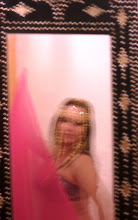 Khaliji dance, UAE
Khaliji dance, UAEThe official message for Dance Day 29 April 2010
The United Nations proclaimed 2010 as International Year for the Rapprochement of Cultures and designated UNESCO as lead agency in this celebration, having regard to its experience of more than 60 years in advancing the mutual knowledge and understanding of peoples.
Irina Bokova, the new Director-General of UNESCO, has proposed a universal vision, which she has called the “new humanism”; a vision open to the entire human community, providing a humanist response to globalization and crisis, aiming at the safeguarding of social cohesion and the preservation of peace.
Dance, being a central part of every culture, constitutes the ideal means for bringing together people from different countries. Festivals promote in the most lively manner reciprocal knowledge and respect of diversity; there are hundreds of millions attending international dance festivals each year. Teachers offering classes in foreign countries provide immediate bridges of understanding ingrained into the bodies of dancers; there are tens of thousands of dance teachers crossing national borders yearly. Congresses and open conferences provide opportunities to showcase one's work to an audience of peers; there are dozens of international meetings of dance researchers, historians and critics in any given year.
Even outside festivals, classes or conferences, simply watching on television a dance from a foreign country offers the most striking, appealing and convincing image of another ethnic group.
Irina Bokova, the new Director-General of UNESCO, has proposed a universal vision, which she has called the “new humanism”; a vision open to the entire human community, providing a humanist response to globalization and crisis, aiming at the safeguarding of social cohesion and the preservation of peace.
Dance, being a central part of every culture, constitutes the ideal means for bringing together people from different countries. Festivals promote in the most lively manner reciprocal knowledge and respect of diversity; there are hundreds of millions attending international dance festivals each year. Teachers offering classes in foreign countries provide immediate bridges of understanding ingrained into the bodies of dancers; there are tens of thousands of dance teachers crossing national borders yearly. Congresses and open conferences provide opportunities to showcase one's work to an audience of peers; there are dozens of international meetings of dance researchers, historians and critics in any given year.
Even outside festivals, classes or conferences, simply watching on television a dance from a foreign country offers the most striking, appealing and convincing image of another ethnic group.
Prof. Alkis Raftis
President of the International Dance Council CID
UNESCO, Paris
President of the International Dance Council CID
UNESCO, Paris
 Omani dancers, Muscat festival
Omani dancers, Muscat festival Salalah dance, Muscat festival
Salalah dance, Muscat festival




















Nessun commento:
Posta un commento